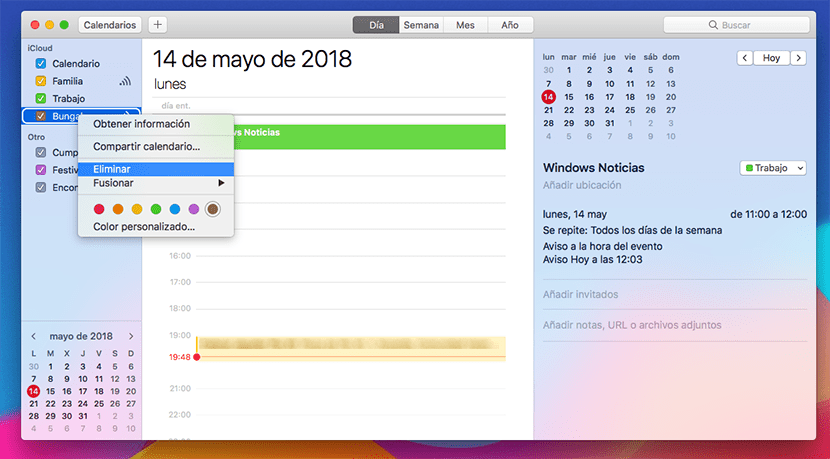
If we are one of those people who forget things and always choose to write everything down on the agenda, it is likely that if we want to maintain order and concert in our agenda, we have created various calendars, so that the events are displayed in different colors, which allows us to quickly know which calendar each event is.
Creating different calendars is as important as keep them in order, as well as knowing the corresponding color, so at a glance we can know how busy we are going to have the day. But, it is also important that the number of them is reduced, so that we can add events quickly and without getting confused when creating new events.
When ordering our calendar, macOS offers us a series of options that allow us, among other things, delete all those calendars that we are no longer going to use Or, we can merge a group of calendars when the events that we write in them are very similar and having them separated has become more of an organization problem, because the events overlap, than a feasible solution for day to day.
Delete calendars on macOS

- First of all, we must click on the icon located on the dock that represents the application Calendar.
- Once open, we go to the upper left and click on the button Calendars, so that all the calendars that we have created on our Mac are shown and that in turn are available on all iOS devices, if we have previously configured it.
- To delete a calendar, we just have to hover over it and press the right button or with two fingers on the trackpad. From the contextual menu that appears, we must select Delete. In the next window, we confirm that we want to delete the calendar and fixed. The calendar has disappeared from our agenda.